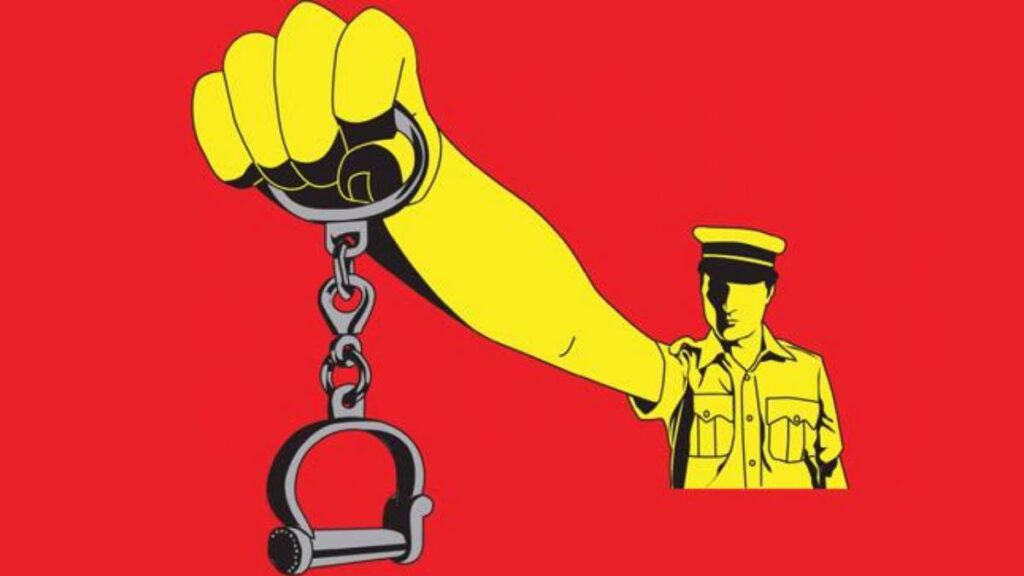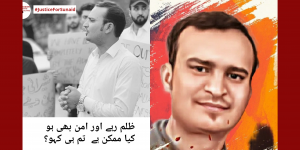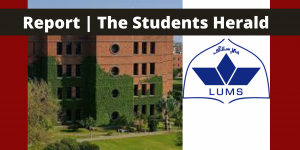Rabia Wali
A.V. Dicey, in his book Introduction to the Study of Law of Constitutions posed the question of who gives birth to whom; whether rights give birth to the constitution or whether the constitution gives birth to rights; whether rights have independent existence from the constitution, or if they are constitution-dependent.
In light of these questions, he referred to British and French Constitutionalism and tried to prove in the end why rights were more twisted in France than in Britain, because in Britain rights existed despite the fact constitution does or does not. In France, on the contrary, rights are the product of the constitution. So that’s how whenever rights are on the mercy of the constitution, they are easily abrogated and restricted and one such example in contemporary times can be observed in the Indian UAPA (Unlawful Activities Prevention Act of 2019) – the principle act of UAPA 1967 which came into form through constitution’s 16th amendment in 1963.
That constitutional amendment equipped the government to impose reasonable restrictions in the interest of state sovereignty and integrity by thrashing freedom of expression, freedom to assemble and to associate to an indeterminate extent, notwithstanding of them being secured under Article 19 and 20 of the Indian constitution. Now the term ‘reasonable restriction’ and its woolly nature and which actions will amount to these restrictions remain imprecise and unclear. It is the legislature which determines their scale according to the needs of time.
Now, by merely amending the UAPA 1967, the government can dodge fundamental rights of people as very clear from newly amended Section 35, 36, in which organisations and individuals can be added to the schedule of terrorist entities if found to be engaged in the activities or commit or participate in act of terrorism or prepare for or promote or otherwise involved in terrorism. Above all the definition of “terrorist act,” deliberately has been kept vague and extended, which includes death or injuries to any person or any act that is likely to strike terror in people or any act to compel the government or any person to do or abstain from doing any act etc. This definition is in complete violation of international law and it ignores the threshold settled by it.
As United nations special Rapporteur in 2006 defined in the following manner: that an act becomes a terrorist act only if the means used must be deadly; the intent behind the act must be to cause fear among population or to compel a government or international organization to do or refrain from doing something; and the aim must be to further an ideological goal.
The application of this act describes the actual purpose of it, so far as mostly individuals arrested under this act are either human rights activists or journalists, which clearly indicates its agenda to cap off criticism of every type. According to human rights watch report of 2019, Maharashtra police arrested and detained under this act 10 civil rights activists, lawyers and writers accusing them of being members of a banned Maoist organization and responsible for funding and instigating caste-based violence that took place on January 1, 2018.
While a fact-finding committee, headed by Pune city’s deputy mayor found that the January 1 violence was premeditated by Hindu extremist groups, but police were targeting the activists because of pressure from the government to protect the perpetrators.
Similarly, an “unending witch-hunt” under this act has begun against anti-citizenship law protesters and above 800 people including Meeran Haider and Safoora Zargar of Jamia Millia Islamia (JMI) university have been arrested under it. Which stir these innocent questions for debate: how are the actions of these protesters terrorising the public? When did they hurt or kill through deadly means?
In truth, like Maharashtra, once again the police is finding scapegoats to put the blame of Delhi communal riots by illogically drawing the conclusion that their peaceful protest led to it. Suppose if it led to it, then why not hold responsible the whole central government and legislature for passing this citizenship act amendment because this irresponsible act became the cause of the protest itself? The real perpetrators are the ones sitting in the cabinet; people like Amit Shah who through their inflammatory remarks gave air to the already blazed matter.
Because if criticism is terrorism, then the government has made its intentions very clear: it should be given freehand to pass any draconian laws and to persecute any dissenter in whatever manner it desires. It is quite shameful how Delhi police is using Covid-19 lockdowns and the pandemic as a cover for targeting these defenceless students and human rights activists and discouraging freedom of thought, popularism and democratic forces in state.
Around 25 to 30 people have been arrested since the announcement of lockdown, which shows the real fear of the central government that it is not the terrorism which is a threat but the bold use of freedom of expression, freedom of association and freedom to assemble. These are the three strongholds of the anti-citizenship law protest which are threatening their authoritarian regime by challenging its very agenda of suppression of minorities.
Rather than paying heed to their demands, the stubborn government is using the UAPA to quash their voices. This law gives free hand to police to search, seize and arrest without warrants. It also allows detention of the “accused” without filing a charge-sheet for up to 180 days and police custody can be up to 30 days. This act has tossed up the principle of criminal law “innocent until proven guilty” and works on the presumption of guilt until proven innocent. Although many attempts have been made to repeal this law and its amendments have been challenged in Supreme Court, however nothing fruitful came out.
According to Indian National Crime Records Bureau, between 2014 and 2016, 75 percent of the accused under UAPA were either acquitted or discharged. This percentage is the depiction of this fact that UAPA is nothing but a repressive tool, which government employ from time to time to uproot proactive members of society through banning critical thought and criminalising the dissenters.
Unfortunately, we are living in the countries where criticising the government policies means threatening the state, where objection means sedition for which high cost must be paid. Just as Dicey had predicted in those states where rights are the children of constitution there, they will become victim of their own mother.
The writer is a student of law.
The Students’ Herald News Desk focuses on reporting the latest news regarding student politics and campus updates to you.
The News Desk can be reached at admin@thestudentsherald.com




